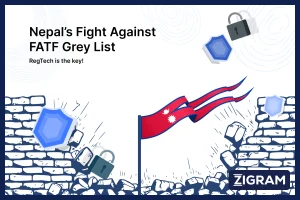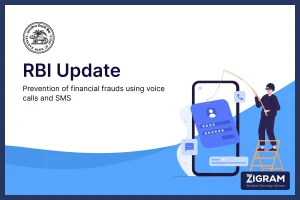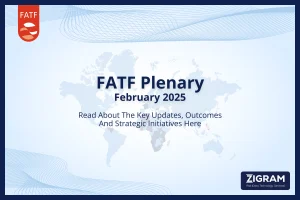The United Arab Emirates’ (UAE) financial sector flourishes in its open market environment and global connectivity. Yet, these strengths also expose vulnerabilities to financial crime, including money laundering, fraud, and terrorist financing, which jeopardize the UAE’s financial stability and reputation. Fortunately, innovative technologies are emerging to tackle these challenges head-on. RegTech (Regulatory Technology) solutions offer a proactive approach by automating compliance processes, enhancing risk detection, and improving overall efficiency for financial institutions (FIs). This article delves into how RegTech empowers the UAE’s financial sector to combat financial crime, showcasing successful implementations, best practices, and the path forward for a more secure financial landscape. RegTech companies leverage cutting-edge technologies such as machine learning, natural language processing, blockchain, and AI to revolutionize regulatory compliance. In 2020, UAE supervisory authorities issued joint guidance to encourage RegTech adoption, particularly in areas like AML/CFT, reflecting the nation’s commitment to managing ML/TF risks effectively. This article explores the proactive approach offered by RegTech solutions, along with specific technologies and strategies driving the transformation in regulatory compliance.

Regulatory Compliance and Its Impact on UAE Businesses
Non-compliance with Anti-Money Laundering (AML), sanctions, and other financial regulations in the UAE can have severe implications for businesses operating within the country, spanning various domains and imposing both financial and reputational strains. Regulatory fines, often substantial and administered by bodies like the Central Bank of the UAE (CBUAE), pose a significant threat to a company's financial stability. Moreover, the ripple effect of tarnished reputations can deter potential investors, partners, and customers, impeding growth and competitiveness. Loss of customer trust further compounds the issue, potentially triggering an exodus of clientele. Beyond monetary losses, non-compliance can lead to dire outcomes such as license revocation, exclusion from essential financial services, and even criminal prosecution for individuals involved. However, proactive measures can mitigate these risks. Prioritizing compliance through comprehensive training, robust programs, and seeking expert guidance enables businesses to navigate the intricate regulatory landscape effectively. The UAE boasts a robust legal framework targeting various financial crimes, including money laundering, sanctions, and cryptocurrency frauds, underscoring the importance of adherence to regulatory standards.
Necessity of Regulatory Technology in the UAE
RegTech, or Regulatory Technology, solutions play a crucial role in the United Arab Emirates (UAE) for several reasons. Firstly, the UAE's rapid economic growth and diversification have resulted in a complex regulatory landscape, with numerous regulatory bodies overseeing various sectors such as finance, real estate, and healthcare. This complexity makes compliance challenging for businesses, prompting the need for RegTech solutions to streamline compliance processes by automating data collection, analysis, and reporting, thereby enabling efficient navigation of the intricate regulatory environment.
Secondly, the UAE government has proactively enhanced regulatory frameworks to align with international standards, particularly in the finance sector. Compliance with regulations such as anti-money laundering (AML) and know your customer (KYC) requirements is critical for businesses operating in Dubai, the UAE's global financial hub. RegTech solutions offer advanced technologies like artificial intelligence and blockchain to strengthen compliance measures, empowering businesses to effectively detect and prevent financial crimes while reducing operational costs and risks.
Thirdly, the UAE's vision for becoming a digital-first nation underscores the importance of leveraging technology to drive innovation across all sectors, including regulation. Embracing RegTech solutions aligns with this vision by fostering digital transformation within regulatory processes. By adopting innovative technologies, regulatory agencies in the UAE can enhance oversight, promote transparency, and facilitate regulatory compliance for businesses, ultimately contributing to the country's economic growth and competitiveness on the global stage. In summary, RegTech solutions are essential in the UAE to navigate the complex regulatory landscape, ensure compliance with international standards, and drive digital transformation across sectors, thereby fostering sustainable economic development.
Proactive Mitigation with RegTech Solutions
Traditional compliance strategies, often reliant on manual processes and reactive investigations, struggle to keep pace with the evolving tactics of criminals. RegTech solutions offer a paradigm shift, enabling (Financial Institutions) FIs to:
Automate Compliance Processes:
Manual tasks like Know Your Customer (KYC) onboarding, transaction monitoring, and sanctions screening become automated, freeing up resources for complex investigations.
Enhance Risk Detection:
Advanced analytics and machine learning algorithms can identify suspicious patterns and red flags in real-time, leading to faster detection and prevention of financial crime.
Improve Efficiency:
Automating routine tasks reduces operational costs and streamlines workflows for compliance teams.
Increase Transparency:
RegTech solutions provide a centralized platform for managing compliance data, facilitating audits and regulatory reporting.
Various technology areas within RegTech play a crucial role in addressing key challenges related to financial crime. Artificial Intelligence (AI) and Machine Learning (ML) algorithms analyze extensive transaction data, enabling the detection of anomalies indicative of fraudulent activity or money laundering attempts. Moreover, they assess customer risk profiles based on behavior patterns and historical data, enhancing the accuracy of risk assessment processes. Big Data Analytics aggregates data from diverse sources, such as internal systems, public records, and social media, to create a comprehensive view of customer activity and identify potential risks more effectively. Despite its association with illicit activities, Blockchain Technology offers promise for RegTech by providing secure and immutable record-keeping, thereby strengthening Know Your Customer (KYC) and Anti-Money Laundering (AML) processes with verifiable customer information. Additionally, Cloud-Based Solutions offer scalability, cost-effectiveness, and access to cutting-edge technology resources, catering to the diverse needs of financial institutions regardless of their size.
The Rise of RegTech in the UAE
Government Initiatives:
The UAE government is at the forefront of technological innovation, fostering collaboration through programs like the Dubai Future Accelerators. These initiatives encourage partnerships between government entities and tech companies, paving the way for the implementation of cutting-edge solutions..
Financial Services Sector:
Dubai and Abu Dhabi's financial hubs are witnessing a surge in RegTech adoption, driven by stringent regulatory frameworks from bodies like the Dubai Financial Services Authority (DFSA) and the Abu Dhabi Global Market (ADGM). The demand for RegTech solutions is soaring as businesses seek to streamline compliance processes and combat financial crimes effectively.
Addressing Compliance Challenges:
The UAE grapples with evolving compliance requirements, particularly in AML, KYC, and data privacy laws. RegTech offers automated solutions to monitor compliance, verify identities, and assess risks, promising efficiency and cost-effectiveness in meeting regulatory obligations.
Harnessing Blockchain and DLT:
Embracing blockchain and Distributed Ledger Technology (DLT), the UAE is exploring avenues to enhance transparency and security in regulatory processes. These solutions leveraging these technologies provide immutable audit trails and secure data sharing, revolutionizing regulatory compliance.
Fostering Collaboration and Innovation:
Collaboration among regulators, financial institutions, tech firms, and academia is key to driving innovation in RegTech. Regulatory sandboxes established by the DFSA and ADGM facilitate the testing and deployment of such solutions, fostering experimentation while ensuring regulatory compliance.
Case Studies: RegTech Success Stories in the UAE
The UAE’s financial institutions are actively embracing RegTech solutions to bolster their compliance efforts. Here are a few examples:
Emirates NBD:
One of the largest banking groups in the Middle East, has implemented advanced RegTech solutions to streamline its compliance processes. By adopting artificial intelligence (AI) and machine learning (ML) technologies, Emirates NBD has been able to automate the monitoring of transactions and detect suspicious activities more efficiently. This has not only strengthened its compliance efforts but also reduced the risk of financial crime.
Mashreq Bank:
Mashreq Bank deployed a RegTech solution for automated KYC onboarding and transaction monitoring process. The cognitive solution helped Mashreq Bank revamp its transaction monitoring processes, resulting in improved accuracy, shorter turnaround time (TAT), and significant cost savings.
Abu Dhabi Commercial Bank (ADCB):
ADCB has embraced RegTech to enhance its anti-money laundering (AML) and know your customer (KYC) procedures. Through the use of innovative platforms, ADCB has improved the accuracy and speed of customer due diligence processes, ensuring compliance with regulatory requirements while minimizing the impact on customer experience. This proactive approach has helped the company stay ahead of emerging threats and maintain a robust compliance framework.
Abu Dhabi Islamic Bank (ADIB):
The bank pioneers the KYC Blockchain Platform in the UAE, enabling seamless sharing of authenticated KYC data among licensing officials and financial institutions. The platform facilitates efficient registration and trading of digital customer data and documents securely, leveraging blockchain and distributed ledger technologies.
Al Ansari Exchange:
Al Ansari Exchange, a leading money exchange house in the UAE, implemented a RegTech platform to combat money laundering risks. The solution automates transaction monitoring and sanctions screening, ensuring adherence to AML regulations.
These Success Stories Highlight the Tangible Benefits of RegTech for UAE FIs
These success stories underscore the tangible benefits of RegTech for UAE financial institutions. Aside from its innovative approach to mitigating financial crime, RegTech solutions offer concrete advantages. By automating repetitive tasks and streamlining compliance workflows, they yield significant cost savings in personnel expenses and operational overheads. Moreover, RegTech harnesses the power of AI and machine learning to analyze vast datasets, uncovering hidden patterns and suspicious activities that may evade traditional detection methods, thus enhancing detection rates. Furthermore, RegTech not only improves detection but also refines it by reducing the number of false positives, enabling investigators to concentrate on genuine risks more efficiently. Additionally, the positive impact extends beyond internal operations, as faster onboarding processes and streamlined workflows facilitated by RegTech contribute to a more positive experience for legitimate customers.
Best Practices for RegTech Adoption in UAE Financial Institutions
Financial institutions in the UAE seeking to integrate RegTech into their operations can follow several key best practices. Firstly, they should conduct a thorough assessment of their compliance requirements, pinpointing specific challenges and regulatory areas where RegTech can offer the most significant impact. Subsequently, they should engage in meticulous research and due diligence to evaluate various vendor solutions, ensuring alignment with their needs, budget, and existing technological infrastructure. Seamless data integration between the RegTech platform and current systems is essential, underlining the importance of establishing clear data governance practices to maintain data quality and security standards. Furthermore, the development of a comprehensive change management strategy is crucial to address potential resistance from personnel and facilitate the successful adoption of new technology throughout the organization. Lastly, verifying the chosen RegTech solution's compliance with relevant UAE regulations and international AML/CFT standards is imperative to ensure regulatory adherence and effectively mitigate associated risks. As a leading provider of integrated RegTech solutions, ZIGRAM's experts will be in Dubai at the Dubai Fintech Summit to showcase their anti-money laundering solutions, demonstrating how compliance can be achieved within 24 hours. To schedule a FREE DEMO, click here.
- #RegTech
- #UAE
- #FinancialCrime
- #Compliance






